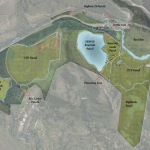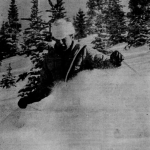U.S. man accused in killing of Polish cop
Associated Press
Vail, CO Colorado

ALL |
GLENVIEW, Ill. ” Nearly a decade after Poland’s former top cop was assassinated outside his home in Warsaw, the investigation has led to this Chicago suburb 4,700 miles away.
U.S. agents descended on Glenview in a raid last year and arrested immigrant Polish businessman Edward Mazur at his luxury home over allegations he hired a hit man to kill Poland’s equivalent of an FBI director.
Today, the 60-year-old millionaire and American citizen sits in a Chicago jail, awaiting word on whether he will be extradited in the slaying that rocked Poland. A federal magistrate heard testimony last month and could rule at any time.
Polish authorities have not offered a clear motive for the gangland-style slaying of national police chief Marek Papala, who was killed with a bullet to the head. But some lawmakers and analysts in Poland have speculated the 39-year-old was targeted because he threatened to disrupt trafficking in narcotics or guns.
Polish officials say Mazur led a double life ” fostering a public image as a good-natured entrepreneur while secretly forging ties to gangsters ” and hired the killer for $40,000.

Support Local Journalism
There has not been a visible outpouring of support for Mazur in Chicago’s enormous Polish community, which is said to have as many as 800,000 members. It is the world’s biggest community of Poles outside Poland.
But friends of Mazur’s said it is inconceivable he could have been mixed up in such dirty dealings. They describe a gentle, generous father of three who never even drank at his soccer club’s frequent parties.
“No way,” said Jozef Karkut, head of Chicago’s Polish-American Wisla soccer club and Mazur’s friend for more than 30 years. “Not a person like Edward could do that.”
Until his arrest, Mazur seemed to be living the American dream. He moved to the United States in the 1960s and earned a degree in engineering. He married and moved to Chicago’s suburbs, where he engaged in philanthropy between business trips to Poland, where he hobnobbed with government ministers.
Mazur’s attorney Chris Gair said that the two were acquaintances and that Mazur arranged for Papala to take English-language courses at Dominican University in the Chicago suburb of River Forest shortly before he was killed.
Mazur had also planned to fly with Papala to Illinois to bring him to the university, said another Mazur supporter, Chicago-based journalist Andrew Wasewicz.
“You wouldn’t murder a guy who is supposed to go with you to the United States,” he said. “It doesn’t add up. From what I see, there is something fishy here.”
At the time of his death in June 1998, Papala had recently resigned as national police chief and was about to start another job as Poland’s police liaison to the European Union. His wife found his body as she went to walk the family dog.
Mazur has not been indicted, but U.S. prosecutors say he faces solicitation-of-murder charges if he is flown to Poland. If convicted, he could get life in prison.
In 2002 testimony in Poland that relied heavily on one witness, Mazur emerged as a mastermind of a plot to kill Papala.
Artur Zirajewski, a gangster serving prison time in Poland in a separate case, described a meeting with Mazur two months before Papala’s slaying. “There was conversation about the hit man ” no one asked about his particulars, only if he was good,” Zirajewski testified.
Mazur’s lawyers have noted that in a 1999 statement, Zirajewski made no mention of Mazur being at such a meeting, and they have accused Polish authorities of framing Mazur out of desperation, vindictiveness and a desire to smear the leftist opposition, to which Mazur has close ties.
“Mr. Mazur is a very successful man who has obviously created a lot of jealousy,” Gair said in court recently. He called the case against Mazur “a fantasy” and a “fairy tale.”
Whispers about Mazur preceded Papala’s murder, said Adam Steinberg, a Polish-language radio host in Chicago. Mazur acquired his wealth in part during the chaotic, corruption-filled years after Poland shook off communist rule.
At his bail hearing last year, Anna Mazur testified that her husband made his money from hard work and business acumen. She said he made $20 million by helping to sell a Polish factory to the yogurt maker Danone, and court records indicate he consulted for several Fortune 500 companies looking for business opportunities in Eastern Europe.
“But the opinion on the street is that he seemed to become wealthy suddenly, unexpectedly,” Steinberg said. “All this raised suspicions.”
U.S. authorities are supporting the extradition request from one of America’s staunchest allies, saying Mazur’s guilt or innocence ought to be something for the Polish legal system to decide.
The assassination “is a national tragedy that they should be allowed to address in their system,” Mitchell Mars said.









